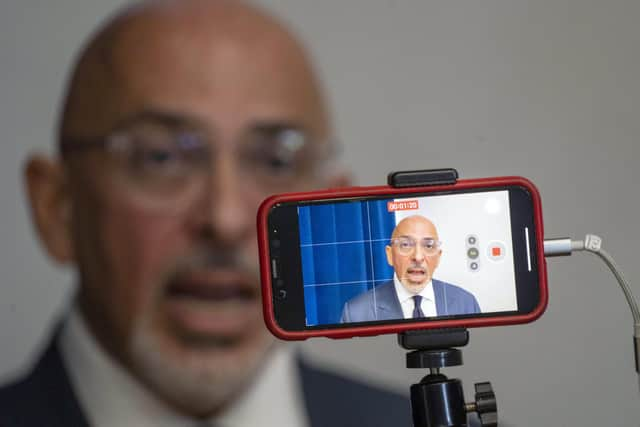Student loans: Education Secretary defends Government’s proposals on payments set to affect millions
and live on Freeview channel 276
Speaking after an event at Sheffield Park Academy on Thursday, he said the move was needed as the current repayment methods are 'not sustainable' as only 23 per cent graduates fully pay the money they have borrowed.
The decision comes as part of the Government's response to the 2019 Augar Review, which called for a major shake-up to post-18 education.
Advertisement
Hide AdAdvertisement
Hide AdHe said: "We've made these changes to student finance to make them more sustainable. If we carry on without the adjustments, loan debt will reach half a trillion pounds by 2043.


"So these changes we have made, the first and I think the most important change for students is that the principle has to be that you shouldn't have to pay back more than you have borrowed in real terms."
The new changes will see the student loan interest rate set at RPI+0 per cent for new borrowers starting courses from 2023/24, which Mr Zahawi deemed as "very important”.
Graduates beginning their studies in September will begin repaying their debt if they earn more than £25,000 per year, down from £27,295.
Advertisement
Hide AdAdvertisement
Hide AdFor current students, the previous threshold will be maintained until April 2025.
Some would be repaying debt well into their 60s.
Graduates' loan repayment period will be extended to 40 years, meaning that some would be repaying student debt well into their 60s.
At the moment, outstanding debt is written off after 30 years, which means that just 23 per cent of students ever repay their loan in full.
However, according to the Department for Education, the changes will result in 52 percent of borrowers repaying their loans.
Advertisement
Hide AdAdvertisement
Hide AdMr Zahawi added: "The second change is actually when you graduate under the current system, you would actually stop paying or have to fully back by the age of 51, that is when most people are coming into their sort of their greatest potential to earn, so we have extended that instead of 30 years to 40 years."
He also said that the Government is investing up to £75 million to deliver a national state scholarship programme for disadvantaged students amid concerns that the poorest young people would be most likely affected by the changes.
